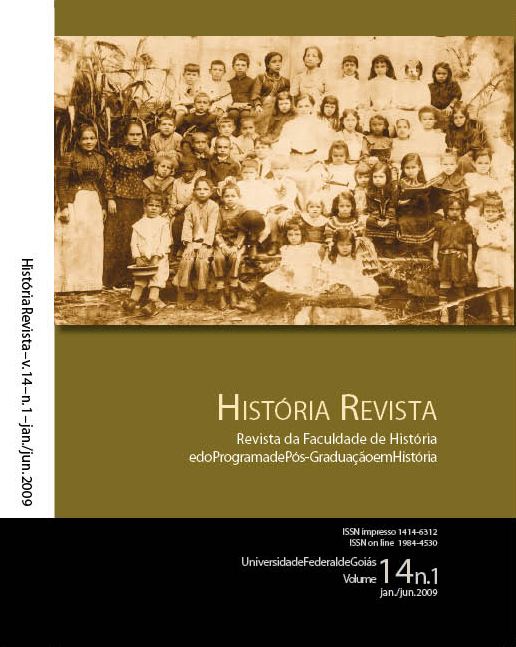CONCEPÇOES DE APRENDIZAGEM HISTÓRICA PRESENTES EM PROPOSTAS CURRICULARES BRASILEIRAS
DOI :
https://doi.org/10.5216/hr.v14i1.8176Résumé
O trabalho insere-se em pesquisa mais ampla sobre as concepções deaprendizagem histórica difundidas no Brasil no período de 1917 a 2006, e faz partedo projeto "Aprender a ler, aprender a escrever história". O escopo da investigaçãoabrange concepções de aprendizagem que têm fundamentado a organização depropostas curriculares brasileiras num período de longa duração, desde a ReformaFrancisco Campos (1931), às propostas curriculares atuais. O recorte proposto nopresente estudo inclui a análise de documentos curriculares referentes aos ParâmetrosCurriculares Nacionais de História para o ensino fundamental e médio (1997;1998) Adotou-se a metodologia de investigação qualitativa de estudo no caso e aperspectiva da investigação bibliográfi ca e documental. A recolha e tratamentode dados pautou-se na análise de conteúdos (Bardin, 2002). Tomaram-se comoreferência estudos realizados na perspectiva do currículo e das disciplinas escolarescomo construção social (Goodson,1997). Ademais, o conceito de "código disciplinar"(Cuesta Fernandez,1997; 1998) permitiu que se entendesse a abrangênciae signifi cado do currículo como texto visível do código disciplinar da história, apartir do qual buscou-se entender a relação entre o conteúdo e a forma da Históriacomo disciplina escolar em determinado momento da sociedade brasileira.Resultados parciais indicam a predominância de concepção de aprendizagemhistórica baseada na idéia de competências fundamentadas na psicologia educacional,bem como uma tendência em situar a aprendizagem a partir do métodode produção do conhecimento histórico, não revelando, ainda, uma concepção deaprendizagem histórica situada na epistemologia da própria ciência da História(Lee,2003; 2006).Téléchargements
Téléchargements
Publié-e
Comment citer
Numéro
Rubrique
Licence
Declaração de Direito Autoral
Concedo à História Revista o direito de primeira publicação da versão revisada do meu artigo, licenciado sob a Licença Creative Commons Attribution, que permite o compartilhamento do trabalho com reconhecimento da autoria e publicação inicial nesta revista.
Afirmo ainda que meu artigo não está sendo submetido a outra publicação e não foi publicado na íntegra em outro periódico, assumindo total responsabilidade por sua originalidade, podendo incidir sobre mim eventuais encargos decorrentes de reivindicação, por parte de terceiros, em relação à autoria do mesmo.



